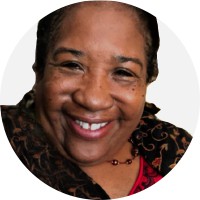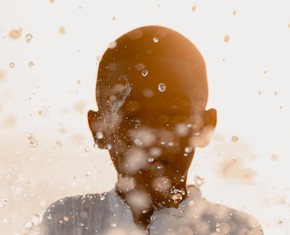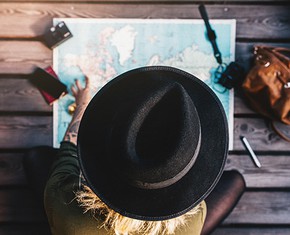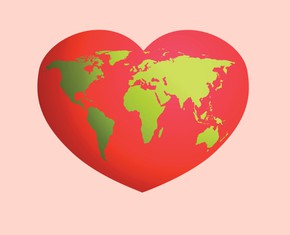The views expressed in our content reflect individual perspectives and do not represent the authoritative views of the Baha'i Faith.
I often wake up with a powerful sense of urgency about being a woman, mother and grandmother of African descent in America today.
When that happens, my mind reflects on what am I doing or not doing to combat the anxiety within society regarding racism, with promoting racial healing, and with just safely existing as a person of color as I live my life these days.
To provide guidance, insights and to build my resolve to serve humanity, I re-read the most powerful books on the subject, the ones that inspire and inform. One of those books is The Advent of Divine Justice by Shoghi Effendi. Recently, I also read Barracoon, the remarkable slave narrative by Zora Neale Hurston, and re-read both The Souls of Black Folk by W.E.B. DuBois and The Secret of Divine Civilization by Abdu’l-Baha.
“Knowledge is as wings to man’s life, and a ladder for his ascent. Its acquisition is incumbent upon everyone,” Baha’u’llah wrote (Tablets of Baha’u’llah). I find it even more important now than it has ever been before to remain literate, to inform myself with insightful writing about racial dialogues in America. Now is not a time to be complacent, of assuming I know all there is to know about the pernicious evil of racism that continues to enervate American society. I want to learn everything I possibly can, so I can help heal my country’s racial divide and bring about the Baha’i principle of the oneness of humanity. In that regard, Baha’is try to initiate two processes in their effort to build “an interracial fellowship completely purged from the curse of racial prejudice:”
… first to regenerate the inward life of their own community, and next to assail the long-standing evils that have entrenched themselves in the life of their nation. – Shoghi Effendi, The Advent of Divine Justice.
In the path of gaining knowledge and self-reflection, I often ask myself, how do I “regenerate the inward life of (my) own community” and “assail the long-standing evil” of racial prejudice? What active steps can I take to create spaces, using the sacred scriptures of all Faiths, including my own, to help transform and inspire racial healing?
In casual interactions with people of European descent, I can often be apprehensive, feeling “on guard.” People of African descent have experienced deep, grievous and slow healing wounds from 400+ years of racial oppression. These feelings can quickly dissipate if I experience within these interactions an act of kindness, an insight or a sincere gesture of concern. By consciously noticing and acting on these positive experiences, the painful memories of being ignored, disrespected or discounted as a woman of African descent will recede.
I can then rely on the powerful example of Abdu’l Baha, the son of Baha’u’llah, who demonstrated in word and deed a loving embrace of all races. My mind and heart can open to effectively, firmly yet lovingly challenging the words and deeds of people within my community who may, unconsciously, display behaviors reflecting the “patent evil’ and “corrosion” of racial prejudice. I can also be courageous when critically examining the information I think I have or what I think I may know, about people who are different from me by adopting what I call an “I could be wrong, so let me investigate reality” frame of reference when in conversation and interaction.
As an American Baha’i of African descent living today, I also find it imperative to deeply and actively work on transforming my inner life in order to become a true servant to humanity. The Baha’i writings describe such a transformation process as integral to faith itself:
… so complete a transformation, so startling a reversal of attitude, can only be effected if that chosen vehicle which is designed to carry the Message of Baha’u’llah to the hungry, the restless, and unshepherded multitudes is itself thoroughly cleansed from the defilements it seeks to remove. – Ibid.
In this fleeting life, every human being faces a dual challenge in developing as a spiritual being: to champion the elimination of racism within the societies in which we live, and to actively focus on transforming our inner lives to free them from racial prejudice.
















Comments
Sign in or create an account
Continue with Googleor